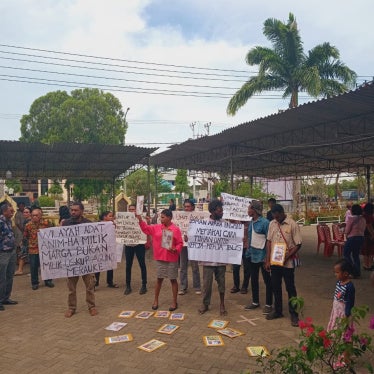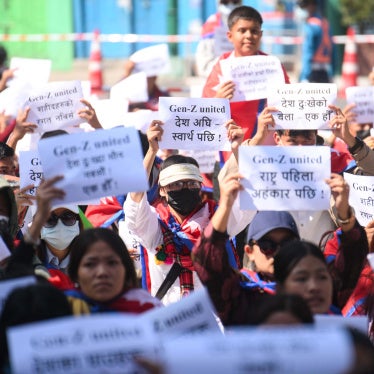WASHINGTON - President Clinton was criticized for his inconsistent and erratic China policy, especially on human rights. But as President Bush prepares to make his first official visit to China this fall, it's not yet clear that his policy will be any better.
Secretary of State Colin Powell returned from a quick trip to Beijing in late July glowing about an upturn in U.S.-China relations. His visit was intended to pave the way for Mr. Bush going to Shanghai Oct. 20 for the Asian Economic Cooperation (APEC) summit, then to Beijing for a state visit.
Just before Mr. Powell's arrival, the authorities staged sham espionage trials for two U.S.-linked China scholars, Gao Zhan from American University in Washington and Li Shoamin, a U.S. citizen teaching business courses in Hong Kong.
The two were expelled, and Mr. Powell welcomed their release - only to find that his own interview on official Chinese TV had been censored to delete his remarks on human rights. The State Department thought it had a deal that nothing would be cut and protested the omission. But the damage had been done.
That's the problem with the Bush policy on China thus far: It has focused on damage control rather than a coherent strategy to encourage change.
Mr. Powell was right to drop the administration's earlier rhetoric demonizing China. But now the White House must move to use the leverage of the forthcoming summit. The new U.S. ambassador in Beijing, Clark Randt, should make it clear that without significant steps forward on human rights, Mr. Bush's first encounter with President Jiang Zemin cannot go smoothly.
The Chinese leadership is engaged in an ongoing succession struggle; a Communist Party Congress late in 2002 will choose Mr. Jiang's successor, a new premier and other top officials. And the party expects that China's entry into the World Trade Organization will trigger even greater rural and urban unrest. In this climate, Mr. Bush's visit has enormous symbolic and practical importance, cementing relations with China's largest trading and investment partner.
Before the summit, the administration should press for the release of the scholars still detained. They are Wu Jianmin, a U.S. citizen formally arrested for spying; Xu Zerong, an academic previously based in Hong Kong; and Qu Wei, a Chinese citizen given a 13-year prison sentence for giving "secrets" to the two scholars expelled from China last month.
With the Chinese leadership making a big push to entice foreign energy companies to invest in Xinjiang, the far northwestern province, the administration urgently needs to develop a strategy, along with the European Union and Japan, to press for greater outside scrutiny of developments in the region.
Xinjiang is a huge Uighur ethnic minority region where Beijing is fiercely suppressing any support for autonomy or independence. A nationwide anti-crime campaign called "Strike Hard," launched in April, is targeted at suspected separatists in Xinjiang, resulting in arbitrary arrests and summary executions.
The White House should begin talks now to negotiate an agreement allowing foreign journalists, diplomats and U.N. human-rights monitors unrestricted access to Xinjiang, as well as to Tibet. Such an agreement would be a real breakthrough that could be announced in connection with Mr. Bush's visit.
A key issue linking human rights and trade is the growth of the Internet in China. But the government's controls on Internet access are having a chilling effect on academic freedom, commercial exchanges and free expression.
More than 60 sets of draconian regulations have been adopted requiring censorship of foreign news sites, imposing restrictions on chat rooms and bulletin boards and giving the authorities discretion to punish virtually any form of expression.
For example, "topics that damage the reputation of the state" are banned, but an Internet user has no way of knowing what those topics might be. Several people have been imprisoned for downloading or posting politically sensitive material on the Web, and the police have shut down thousands of Internet cafés.
Mr. Bush should plan to visit an Internet café in Beijing or Shanghai and make public his concern about censored Web sites. In addition, he should work with other APEC-member countries to push China to ease restrictions on the Internet. American businesses sponsoring the 2008 Olympic Games in Beijing should be asked by the White House to assist in this effort.
The Bush administration must address a wide range of concerns in dealing with China, but human rights must be a key issue on the agenda. And the forthcoming summit should yield results, not just rhetoric.
Mike Jendrzejczyk is Washington Director for Asia at Human Rights Watch.








